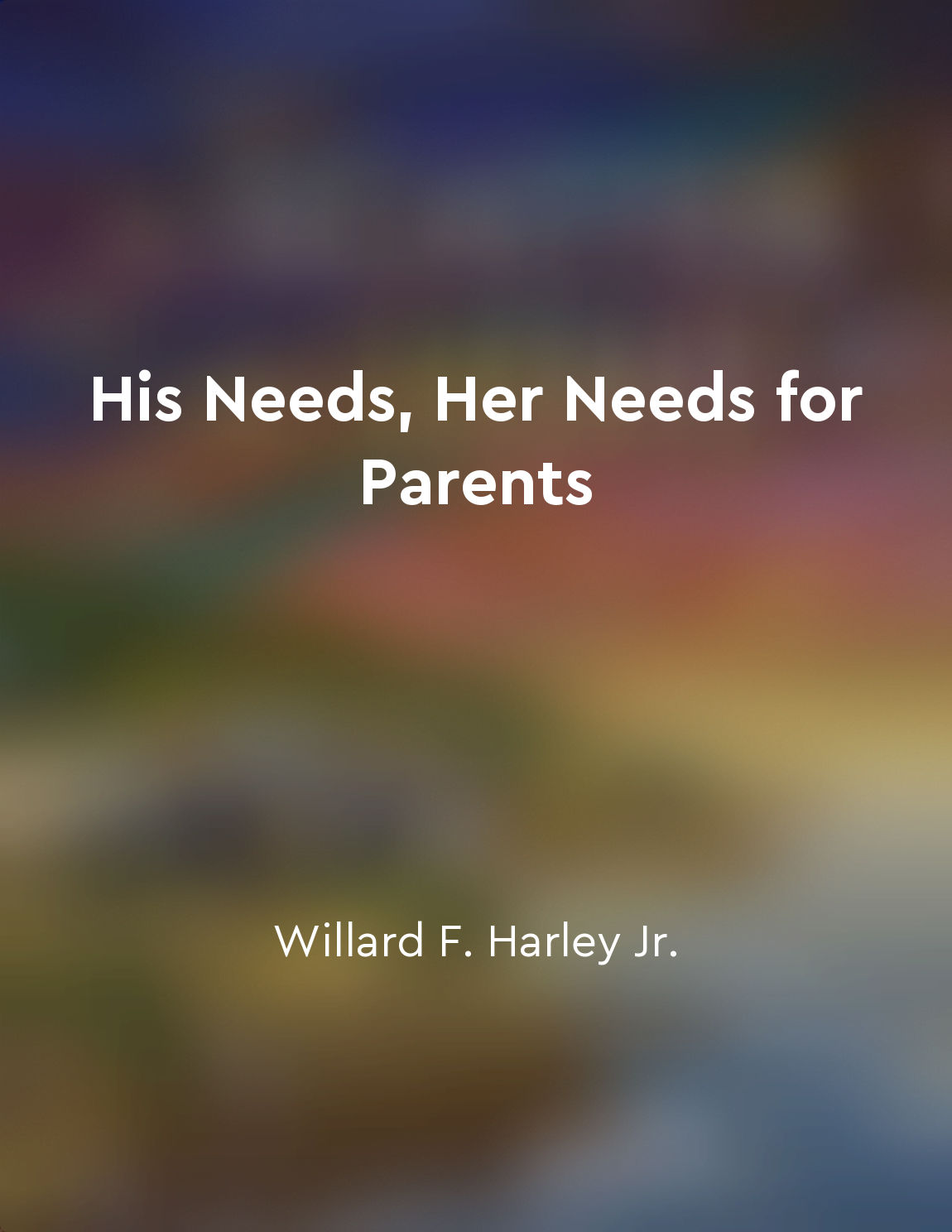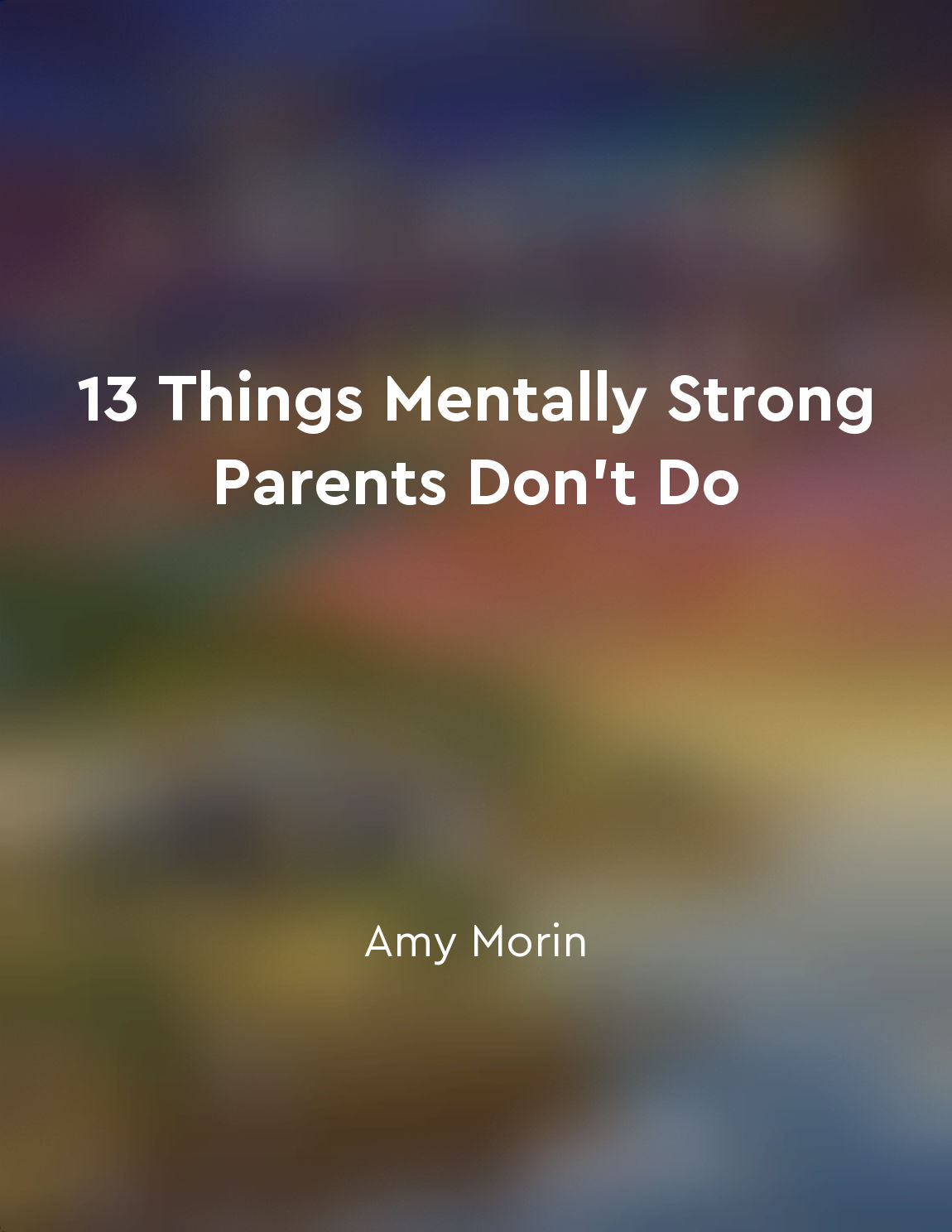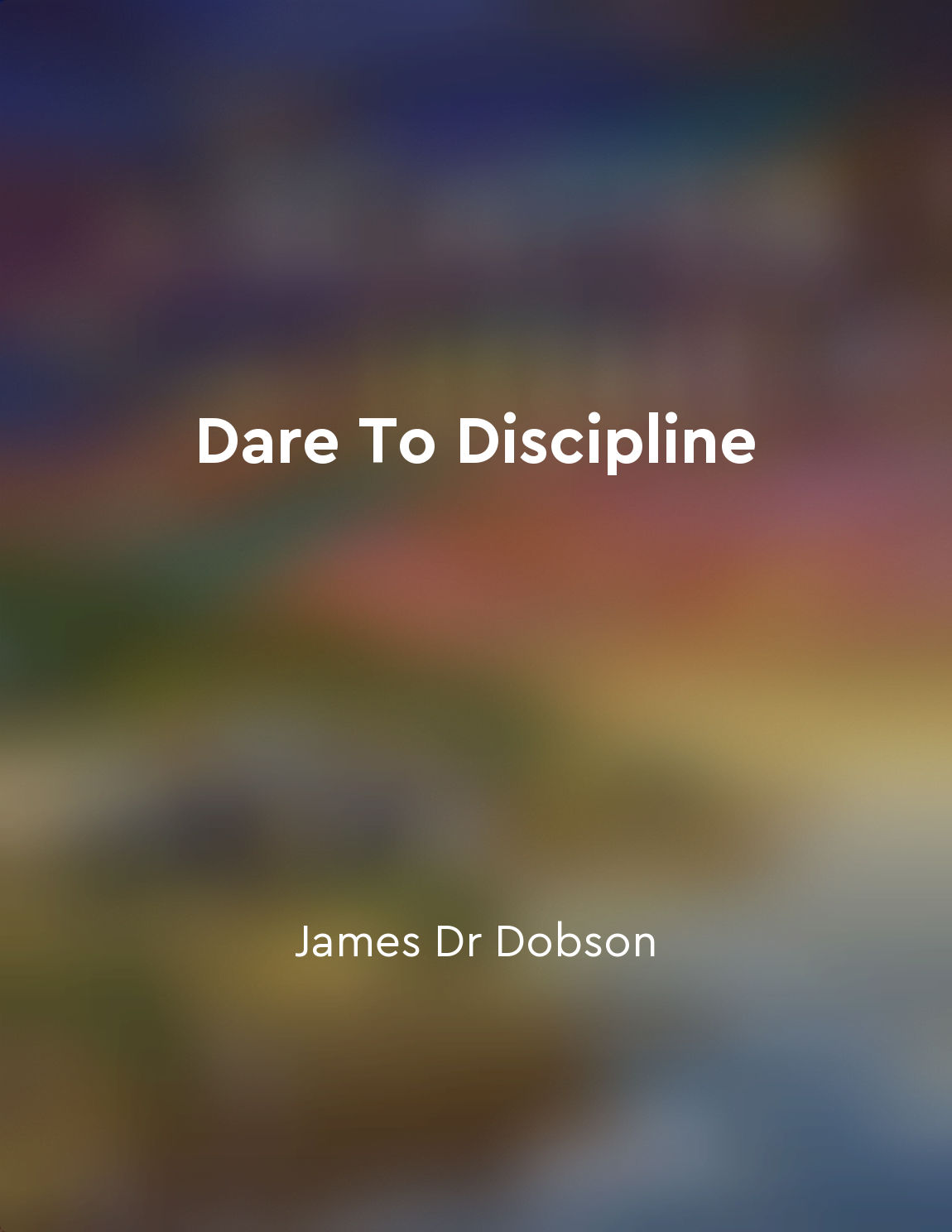Punishment erodes connection and trust with your child from "summary" of No-Drama Discipline by Daniel J. Siegel,Tina Payne Bryson
When we resort to punishment as a way to discipline our children, we may not realize the negative impact it can have on our relationship with them. Punishment can create a divide between us and our children, eroding the connection and trust that are so essential for effective discipline. Instead of strengthening our bond with them, punishment can actually weaken it, making it harder for our children to come to us when they are struggling or need guidance. When we punish our children, we are essentially using fear and intimidation to control their behavior. This may work in the short term, but in the long run, it can damage our relationship with them. Our children may come to see us as authoritarian figures to be feared, rather than as caring and supportive parents who are there to help them learn and grow. This can lead to feelings of resentment and mistrust, making it difficult for our children to open u...Similar Posts

Children require love and attention to feel secure and valued
Children are like sponges, soaking up the emotional atmosphere in their homes. They thrive in an environment where they feel lo...

Practice Teaching Your Child Important Life Skills
Teaching your child important life skills is crucial. It's not enough to simply tell them what to do or expect them to figure i...
Make at least one thing better every single place you go
One of the key concepts presented in "12 Rules for Life" is the idea of making a positive impact wherever you go. This means th...

Consistency in discipline is key
The principle of consistency in discipline is as important as the air we breathe. It is the foundation upon which all effective...

Foster a strong bond based on trust and respect
Building a strong bond with your child is essential for effective communication. When children feel that they are trusted and r...
Involve both parents in the discipline process
The best way to maintain consistency and unity in the discipline process is to involve both parents. This does not mean that on...
Encourage outdoor exploration and free play
Encouraging outdoor exploration and free play is essential for children's healthy development. When children have the freedom t...
Focus on creating a harmonious home environment
In Denmark, creating a harmonious home environment is considered a key element in raising happy and well-adjusted children. Thi...
Listen actively to understand your child's perspective
Listening actively to understand your child's perspective is a crucial skill for parents. It involves more than just hearing th...
